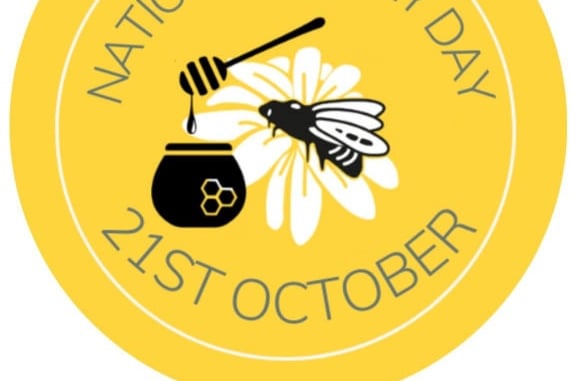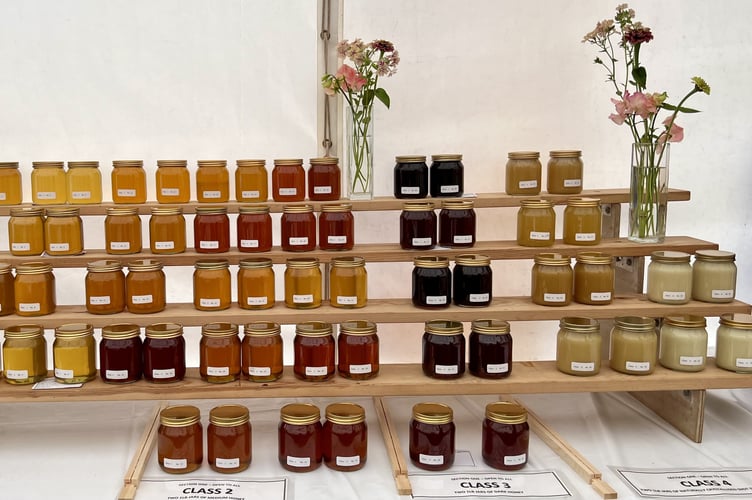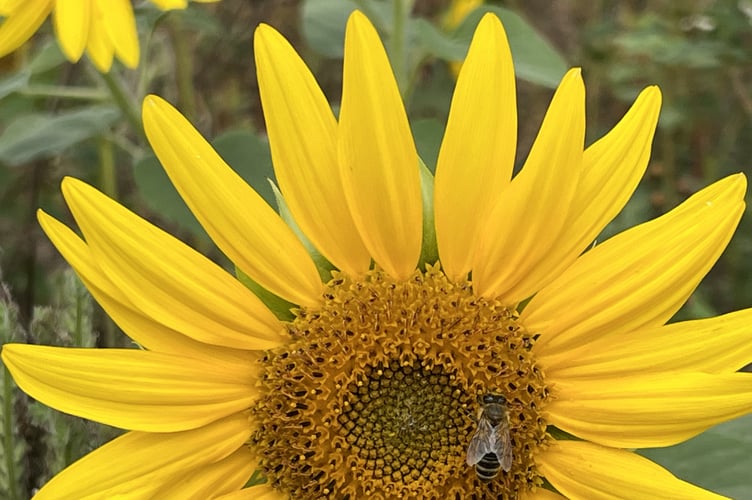THE British Beekeepers’ Association (BBKA) is celebrating one of the great pleasures in life on National Honey Day, Saturday, October 21 – local honey.

The charity, which represents 28,000 beekeepers, urges honey-lovers to buy a jar produced as close to their homes as they can.
The BBKA’s honey ambassador Lynne Ingram said: “It’s the end of the season and the honey harvest is mostly gathered in.
“This is our opportunity to celebrate the sheer variety, colour and taste of British honeys. From the water white borage honey to the darkest honeydew and gel like heather honey, the UK produces some remarkable honeys that are a joy to taste.

“Honey is made from nectar that is unique in colour and flavour to a particular plant, and to the soil and climate where it is grown – its terroir.
“In the same way that fine wines differ due to their terroir, honey, too, has different characteristics with flavours varying from the light and delicate to rich and mellow. Like wine, honey is delicious when paired with other foods such as cheeses.”
Most people in the UK are not far from a local beekeeper with bee hives managed in almost all environments from city roof tops to urban allotments as well as orchards, moors and agricultural land.
This year, with its cold spring, blazing June and damp summer, has produced some distinctive flavours. Some beekeepers have noticed harvests with rich tasting and highly aromatic honeys as a result of trees flowering during high temperatures.
Now in its second year, National Honey Day is going from strength-to-strength.
The BBKA’s Chair, Diane Drinkwater, added that local honey shows attract crowds of non-beekeepers interested in how bees produce completely different honeys in one season.
“Honey bees are remarkable insects and so is the honey they produce. One bee can produce an average of 1/12 of a teaspoon in her lifetime and it takes two million flowers to produce one pound of honey or 0.45kg,” said Diane.
To help find local honey producers, some beekeepers' associations publish interactive honey maps on their websites. Alternatively, visit local farmers’ markets, independent shops and delis.
The BBKA is encouraging consumers who purchase a jar of local honey on National Honey Day to use the hashtags #NationalHoneyDay, #LocalHoney, #Beekeeping.


-Liam-Westpfel-(Man-Down).jpg?width=209&height=140&crop=209:145,smart&quality=75)


Comments
This article has no comments yet. Be the first to leave a comment.